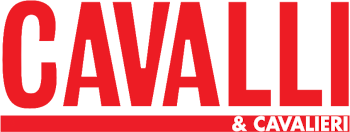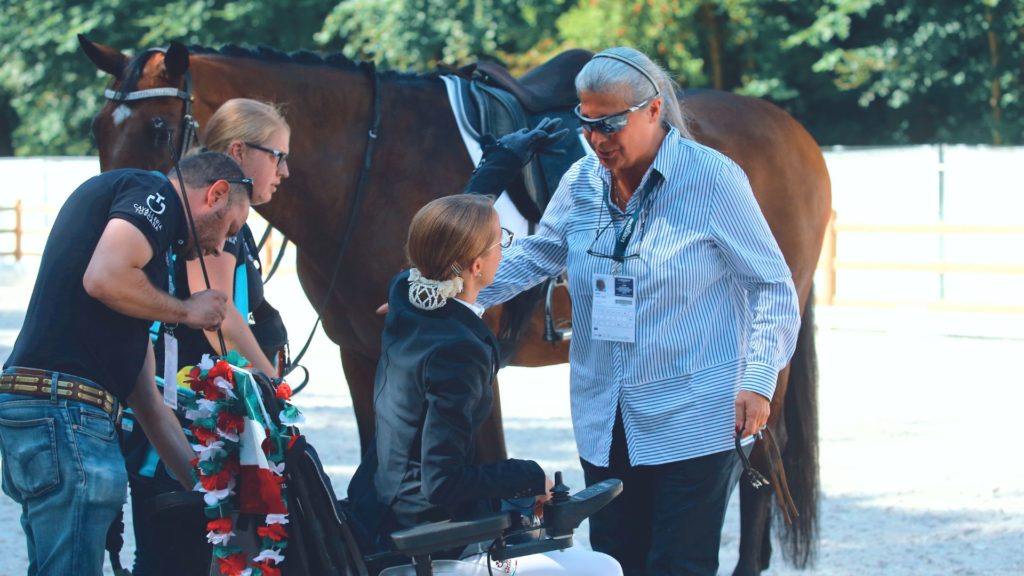By Laura Conz
The continuous evolution of the sport brings a collection of new team members, who need to exist to improve the daily organisation of the stables, and have the role of supporting the complex and detailed management of the equestrian athletes, horse and rider. Different athletes have different needs, and these need to merge into a perfect synergy in order to achieve the perfect partnership between horse and rider. Nowadays, beyond the sporting-competitive goals, an athlete’s career is fulfilled with relevant activities and relationships. Communication, keeping up to date on the regulations which are in constant evolution, education and respect for sporting ethics and, of course, for the horse, as an animal and as an athlete, two inseparable aspects that are to be managed with utmost care: these are all important aspects of the rider’s daily management that need to be considered. The modern athlete needs to have good relationship management skills, have broad knowledge of the equestrian culture, have a 360° expertise of the horses’ needs and a clear vision for medium-long term projects.
From these necessities derives the need for the role of a Career Manager. The Career Manager becomes a key figure both in the management of the horse and in the organization of the team of specialists, who assists the combination of horse and rider, supporting the optimisation of their performance and obtaining the best result and a better quality of life. The Career Manager must be meticulous and accurate, must have all the competence, experience and foresight in order to play an organizational role in close collaboration with the various professionals according to the needs of horses and riders.
The creation of a strong, organized and competent team is the foundation of every athlete’s success.
Management skills
What are the managerial skills a Career Manager should have?
The skills identified include 3 macro areas; first of all, to have strong managerial skills. Secondly, deep knowledge of the specific discipline, and lastly, to be competent in supporting the athletes career development.
1. Skills for the organization of travelling to events and competitions:
▹ To plan and organize the logistics of travel, especially with reference to the needs and well-being of the horses. ▹ List of veterinary clinics or names of veterinarians and their contact details on route to events. ▹ Be aware of all customs documentation in order to ensure a smooth travel to different countries. ▹ Have the necessary TRACES prepared. ▹ Organization of travel for the groom(s) (accommodation and meals, possible visas) ▹Reservation of the stables and organization of bedding for stop overs and destination. ▹Tack check. Identify any tack shop at the destination. ▹ Organise and check arrival times of the horses both during any stopovers and at the final destination. ▹ Organise travelling equipment. ▹ Plan return trip. ▹ Organize the various professionals that revolve around the athlete’s activity, for example trainer, doctor, physiotherapist, farrier, veterinarian, transporter, toolmaker, ensuring everybody works at high standards and checking results. ▹ Manage recruitment of any professional needed. ▹Identify and manage issues by proposing and implementing, where necessary, solutions. ▹ Manage and maintain contact with sponsors. ▹ Liaise with both individuals and organizations (such as Event Organizing Committees) to ensure suitable strategies for the success of the event, and well-being of both horse and rider. ▹ Interfacing with the Institutions for all bureaucratic duties
2. Institutional and organizational skills
▹ Plan, together with the team, the training activities, the competition program and all the organizational and logistical aspects that follow. ▹ Manage the organizational, informational and relational aspects between the athletes and all the team members and organizations that revolve around them. ▹ Manage relations with the bodies, institutions and economic organisations that contribute to or regulate competitive activities. ▹Collecting and solving organizational, relational and logistical problems that may arise. ▹Support the athlete and his staff in strategic career choices. ▹ Know the rules, regulations and new competition formulas proposed by the International Equestrian Federation and the Italian Equestrian Sports Federation. ▹ Know who to contact in case of need. ▹ Have awareness on how to relate with officials, trainers, and all involved within the sport. ▹ Respect the sports hierarchy. ▹ Knowing who to address when issues arise. ▹A very important aspect is knowing how to relate with the Officials, and knowing the English language at an executive level.
3. Skills required to support the athlete career development and management
▹ Being able to produce a short term and long term plan as well as focusing on achievable primary and secondary goals ▹ Relating with the athletes and with all professionals who are involved in the athlete’s sporting activities. ▹Motivate the athlete. ▹ Create team spirit among the team members working around the athlete. ▹ Promote meetings with the athlete to develop strategies to improve his career and support him in achieving them by making him participate and aware (especially in the behaviours to keep and adopt in different situations). ▹Prepare reports/press releases for sponsors, informing them of both the results of the competitions and any needs. ▹ Share programs with managers and team members working around the athlete. Specific technical skills for the Dressage discipline ▹Being able to relate with national and international judges and stewards and to prevent technical and regulatory issues and be able to iron out any critical issues. ▹ Knowing how to relate with judges and stewards. ▹ Know the ‘mechanisms’ of a competition in relation to the technical level. ▹ Knowing people to ask for advice or referrals to. ▹ Have practiced or have excellent knowledge of the discipline of Dressage. ▹ Knowing what each judge’s preference might be. ▹Plan the preparation objectives with the professionals involved. ▹ Analyse the athlete’s results and check with coaches and trainers for any necessary changes to resolve particular problems or weaknesses in the preparation. ▹ Knowing how to relate to the trainer. ▹ Use of videos for educational purposes. ▹ Maintain a data base of analysis of the scores for movement and by percentage obtained by the various judges in the different categories. ▹If necessary, know how to propose a technical consultation. ▹ Know the specialties of the trainers in order to be able to propose a suitable person.
It is easy to deduce that the role of the Career Manager is quite complex, it is like a large container that brings together all aspects of training, growth and success in competition, the main goal of athletes. What increases the complexity of the Career Manager’s role are the two athletes who make up the sporting combination: rider and horse. Both with precise personal needs that must find their perfect balance, create the symbiosis and harmony that allows them to express themselves at their best. •

